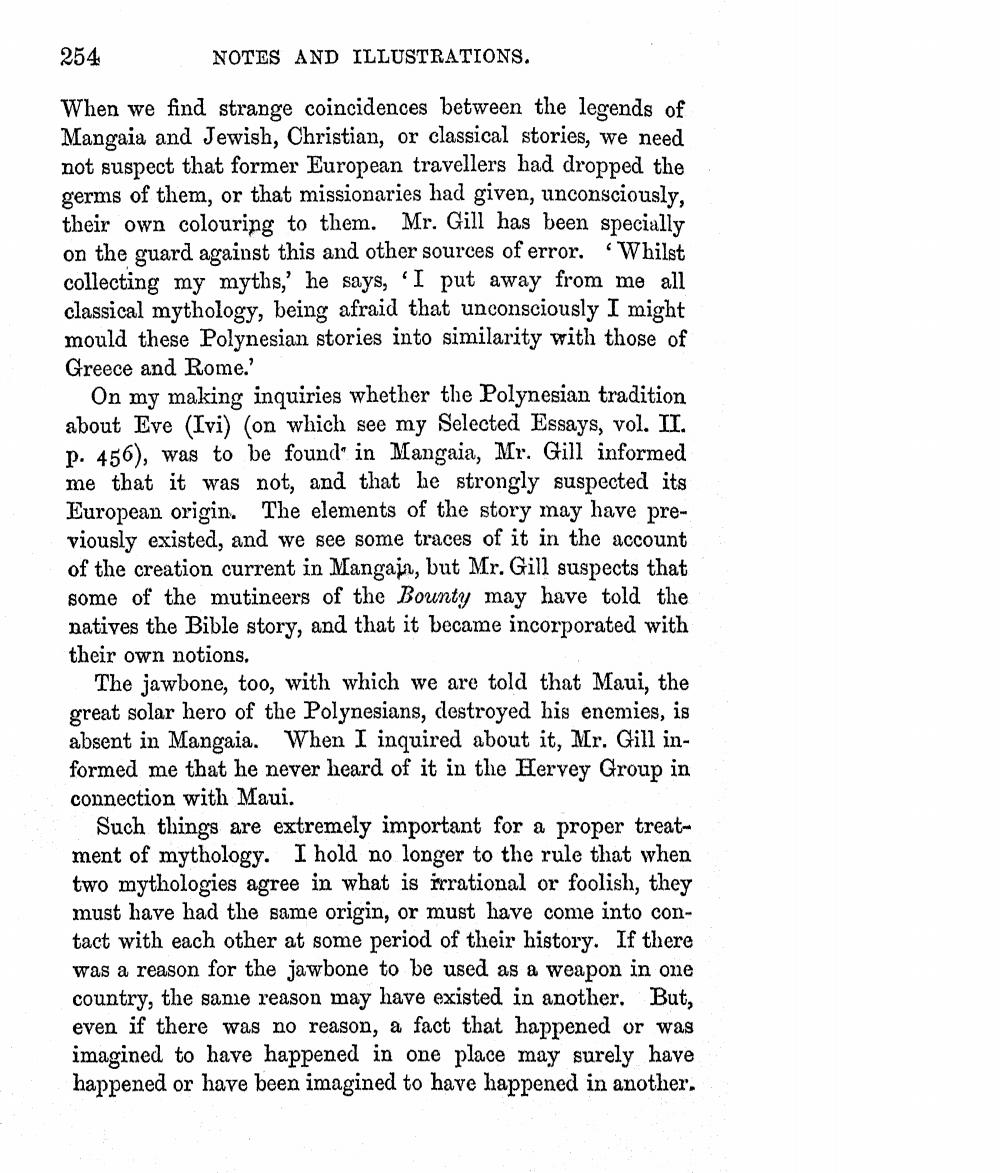________________
254
NOTES AND ILLUSTRATIONS,
When we find strange coincidences between the legends of Mangaia and Jewish, Christian, or classical stories, we need not suspect that former European travellers had dropped the germs of them, or that missionaries had given, unconsciously, their own colouring to them. Mr. Gill has been specially on the guard against this and other sources of error. Whilst collecting my myths,' he says, 'I put away from me all classical mythology, being afraid that unconsciously I might mould these Polynesian stories into similarity with those of Greece and Rome.'
On my making inquiries whether the Polynesian tradition about Eve (Ivi) (on which see my Selected Essays, vol. II. p. 456), was to be found in Mangaia, Mr. Gill informed me that it was not, and that he strongly suspected its European origin. The elements of the story may have previously existed, and we see some traces of it in the account of the creation current in Mangain, but Mr. Gill suspects that some of the mutineers of the Bounty may have told the natives the Bible story, and that it became incorporated with their own notions.
The jawbone, too, with which we are told that Maui, the great solar hero of the Polynesians, destroyed his enemies, is absent in Mangaia. When I inquired about it, Mr. Gill informed me that he never heard of it in the Hervey Group in connection with Maui.
Such things are extremely important for a proper treatment of mythology. I hold no longer to the rule that when two mythologies agree in what is irrational or foolish, they must have had the same origin, or must have come into contact with each other at some period of their history. If there was a reason for the jawbone to be used as a weapon in one country, the same reason may have existed in another. But, even if there was no reason, a fact that happened or was imagined to have happened in one place may surely have happened or have been imagined to have happened in another.




